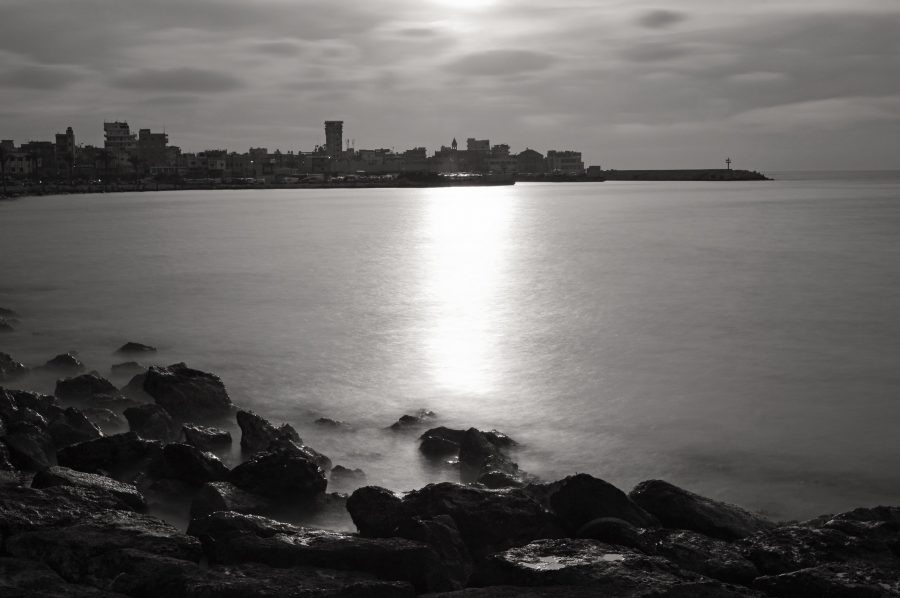I first encountered Lebanon as a teenager after the fabled Choueifat College opened its first UAE campus in Sharjah, fleeing the civil war in the Chouf. My ignorance of the country I was to know and love as my own patrie was monumental. When a classmate told me he was a Darzi, I assumed his father was a tailor since Darzi means “tailor” in Urdu, Pakistan’s national language. Later, much later, I got know the Druze villages of the Chouf, enjoyed the exquisite beauty of Deir al-Qamar and was even invited to visit the Ottoman era citadel at Moukhtara. To this day, my admittedly modest Arabic is still suffused with Beiruti slang – hi, ça va, kifak?
As the decades passed, I shared in the dreams and nightmares of my Lebanese friends in New York, London, Chicago and Dubai in my international banking career. The Taif Accords that ended the civil war, the flotation of Solidere and the reconstruction of downtown Beirut, the legendary career of the late Prime Minister Rafiq Hariri, christened Mr. Lebanon by the Wall Street cognoscenti as the Eurobond new issue mandates came out and an ex Merrill Lynch financier ran the Banque du Liban.
Yet Mr. Hariri’s life and his people’s dreams were shattered by an epic bomb that gutted his motorcade on Valentine’s Day 2005 in Ein el Mreisseh, next to the St. Georges club I so loved. I took my wife and twins, then 10 years old to Lebanon in 2007, just after the devastating July 2006 war with Israel. I wanted them to witness the rawness and tragedy of what had happened in this ancient, lovely haunted land, in my city of ghosts.
When we visited the Beirut museum, that symbol of hope and (literal) archaeological resurrection, tears swelled in my eyes as memories and ghosts of the past overwhelmed me – this was the Mehtaf Crossing, when the Green Line dissected East and West Beirut for Lebanon’s lost generation. When I met Fouad Siniora at a dinner in Dubai, he jokingly told me, I should become the Pakistan’s ambassador to Lebanon… perhaps in a parallel universe where my country was a liberal secular state and Sir Cyril Raddcliffe was an unknown name to history.
I passionately believe that financial markets are a more potent force for social change and world peace than the lethal game of nations and the tragic calculus of realpolitik. Lebanon, I concluded, is more Dr. Kamal Salibi’s A House of Many Mansions, the fake Phoenician Gallic “rêve d’Orient” (dream of the orient) than Robert Fisk’s Pity the Nation. From the Roman ruins at Baalbek to the medieval monasteries of the Qadisha Valley, from the Crusader castles of Outre-Mer to Château Ksara, from the Umayyad ruins at Anjar to the Ottoman souks of Sidon, from the moonlit silhouette of Mount Sannine to the jeunesse dorée hangouts of Rue Monnot and Beit Mary, my fascination with Lebanon is aesthetic and ultimately human, as this is the jewel in the crown of the Arab world where Mount Olympus is on Rue Bliss.
Lebanon is a classical entrepôt economy, a nation whose expat diaspora is triple its local population. Yet Lebanon has also been a place of refuge for generations, a haven for countless Armenians, Circassians, Iraqis, Palestinians, German Jews, White Russians, Kurds and Syrians who lost the game of nations. I witnessed this human miracle in Chatila, Ain al-Hilweh, Bourj Hammoud and Hamra. I have friends whose ancestors were Armenians who survived the 1915 genocide amid the death rattle of the Ottoman Empire in east Anatolia. Beirut, a place of war and blood, was also a place of refuge and sanctuary.
I am both amazed and worried about the current protest movement that began in October. Finally, the Lebanese people have revolted against the sectarian DNA of their political elite who have ruled the roost since the National Pact was signed in the 1940’s. It is difficult not to feel as if we are witnessing yet another historic inflection point in a country that desperately needs a break from two much history.
Lebanon’s financial situation is now precarious. The debt to GDP ratios is above 150%, making Lebanon the Arab Argentina. The influx of 2 million Syrian refugees has destabilized a fragile state at the mercy of multiple regional “great games” of geopolitics. A chronic shortage has led to a fall in the Lebanese pound and panic in petrol stations, supermarkets and hospitals. Unlike the case in the Paris I and Paris II sovereign debt reschedulings led by France and Saudi Arabia, I cannot fathom a global deal to avert a banking, currency and sovereign debt Armageddon. The United States, the IMF, France and the Gulf states cannot and must not abandon Lebanon – the human and financial stakes are simply too high. Meanwhile, Solidere shares trade at 50% below their IPO price and Nathan Mayer Rothschild, whose clan’s legacy bought such anguish to the Levant, advise us to buy when there is blood on the street – all too literal in Beirut I once knew.
Lebanon’s financial predicament – inflation, joblessness, decaying infrastructure – is neither unique nor unsolvable. Its banking system’s deposit to GDP ratio is 300%, exceeded only by Hong Kong and Luxemburg. Its global diaspora extends from Atlantic Avenue in Brooklyn to Sao Paulo, from Dubai’s DIFC to London’s Bishopsgate and from Paris’s La Défense to Geneva’s Rue du Rhône. The Lebanese people want a parliamentary democracy, a government of technocrats. If it is always darkest before dawn, I also remember the splendour of a Mediterranean sunrise witnessed from a terrace in Raouche, high above the Corniche, with the Pigeon Rocks bathed in the pale gold sheen. I know. I was there, listening to Fairouz’s (and Hoda Haddad’s) Ya Hawa Beirut. So must we really pity the nation in 2019? Absolutely not. Lebanon will rise. Lebanon will live. Lebanon will survive. That much, at least, is certain.







